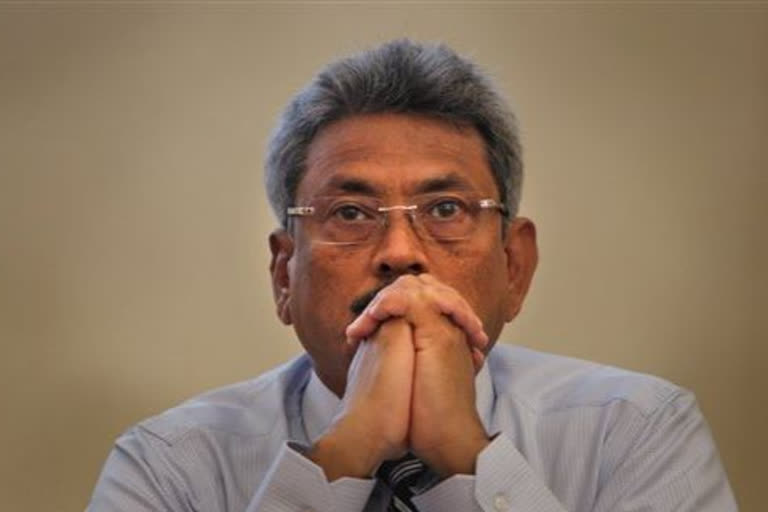Colombo: With embattled President Gotabaya Rajapaksa confirming his intention to resign as promised on Wednesday, Sri Lanka's political parties on Monday initiated steps to form an all-party government and subsequently elect a new President on July 20 to prevent the bankrupt nation sliding further into anarchy. President Rajapaksa has officially conveyed to Prime Minister Ranil Wickremesinghe that he will resign on July 13 as previously announced, the PM Office said on Monday, days after protesters stormed both leaders' homes in rage over the government's mishandling of the country's worst economic crisis.
The entire Sri Lankan Cabinet will resign and hand over their responsibilities to a new all-party interim government as soon as it is formed, Prime Minister Wickremesinghe's office said on Monday, as the country grappled with political and economic crises. It said all members of the cabinet have agreed to hand over their responsibilities to a new all-party government as soon as it is formed.
"All the ministers who participated in the discussion were of the opinion that as soon as there is an agreement to form an all-party government, they are ready to hand over their responsibilities to that government, the PM Office said. Rajapaksa informed Speaker Mahinda Yapa Abeywardena from an undisclosed location on Saturday that he will resign on Wednesday after thousands of irate protesters stormed into the President's house in Colombo's high-security Fort area, calling for him to step down.
"President Gotabaya Rajapaksa has officially informed Prime Minister Ranil Wickremesinghe that he will be resigning as previously announced, a statement from the PM's office said. The Sri Lankan Parliament will elect the new president to succeed Rajapaksa on July 20, Speaker Abeywardena announced on Monday. The decision was taken during a crucial all-party leaders meeting held earlier in the day.
After receiving Rajapaksa's resignation on Wednesday, Parliament will convene on July 15 to announce the vacancy and will reconvene on July 19 to accept the nominations for the post, Abeywardena said. A parliamentary ballot will be held on July 20 to elect the new president, he said. Under the Sri Lankan Constitution, if both the president and prime minister resign, the Speaker of parliament will serve as acting president for a maximum of 30 days.
The Parliament will elect a new president within 30 days from one of its members, who will hold the office for the remaining two years of the current term. Meanwhile, the main opposition party Samagi Jana Balavegaya (SJB) said on Monday that it is ready to lead the next government to bring stability to the bankrupt island nation as it grapples with political and economic crises and any resistance to the move in Parliament will be seen as a "treacherous act".
Prime Minister Wickremesinghe has already said he was willing to resign and make way for an all-party government to take over. Reacting publicly for the first time after his private house was set on fire by anti-government protesters on Saturday, Wickremesinghe said on Monday that only people with a "Hitler-like mindset" torch buildings and added that there was a "background event" that led to what transpired that night.
